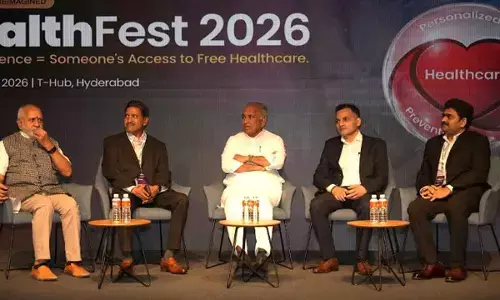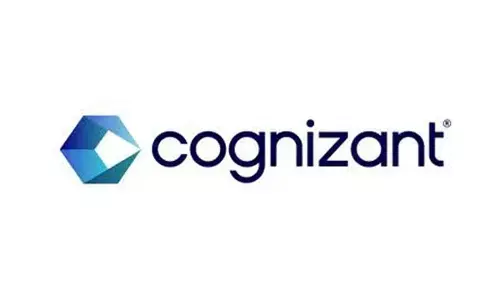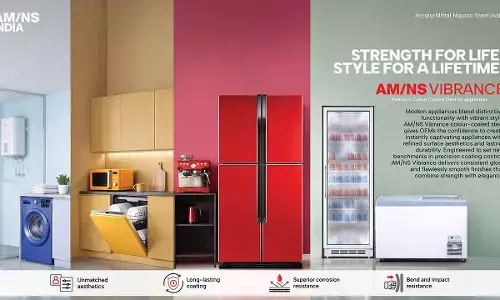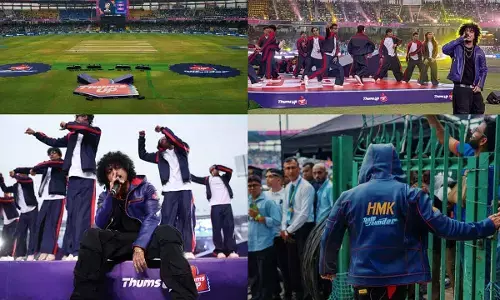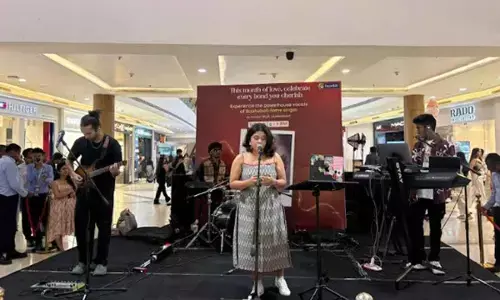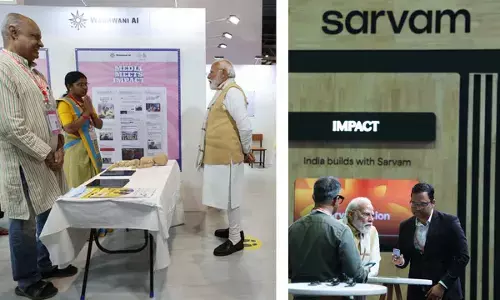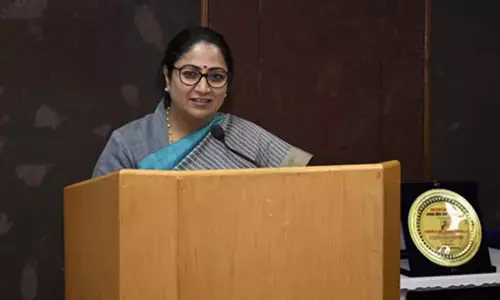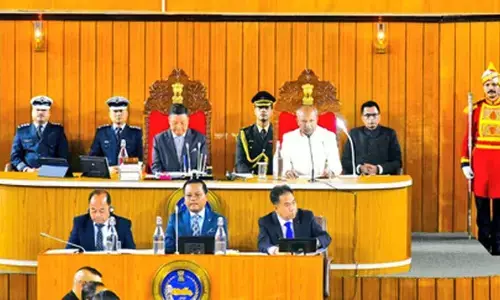Freebies issue getting murkier

How to define what is a freebie and what is welfare measure? Well, this is the most discussed topic everywhere now.
How to define what is a freebie and what is welfare measure? Well, this is the most discussed topic everywhere now. What opposition feels is a freebie, the ruling party's claims is a welfare measure.
The Supreme Court of India also finds the issue "increasingly complicated." It raised a question. Whether access to free education, drinking water, electricity can be termed as freebies?
This query was raised by a bench headed by Chief Justice N.V. Ramana and other judges J K maheshwari and Hima Kohli said the court cannot prevent political parties from making promises. However, it added that the question is what constitutes right promises?
But one very pertinent point the bench made was whether free electronic equipment's be described as welfare? What is right way of spending public money.
"Some say money is wasted; some say it is welfare. The issue is getting increasingly complicated," said the bench, asking the parties involved in the matter to give their opinions, and after debate and discussion on the matter, the court may take a decision.
While the Prime Minister Narendra Modi and BJP have coined a new word 'Revadi' for these freebies and cautioned the states that their economy would be adversely affected if the state governments do not refrain from distributing Revadi's, the regional parties like AAP, TRS. TMC, Congress and others are taking jibes at each other. The non BJP parties feel that the BJP was insulting the people by calling the direct money transfer and other schemes as Revadi's. They alleged that it is BJP which had given revadi's to all those who indulged in bank "fraud". Delhi Chief Minister Arvind Kejriwal accused the BJP government of taxing the poor and said there seems to be something wrong with the Centre's finances the way it is "strongly opposing" free facilities for people.
Kejriwal claimed that the government waived Rs 10 lakh crore of loans and Rs 5 lakh crore of taxes of super rich people and their companies. He said the BJP led government has no concern for the poor and that is why it was taxing the poor by levying GST on essential commodities like milk and milk products.
The cost of financing freebies and social welfare programs is becoming an issue in many states. States like Punjab, West Bengal and Andhra Pradesh seem to be heading towards a serious budgetary crisis.
Let's see what different stake holders have to say about freebies. The DMK feels that the scope of a 'freebie' is very wide and there are lot of aspects which need to be considered and a welfare scheme introduced by a state government cannot be classified as a freebie. It also felt that the PIL against freebies, will frustrate the objectives of the Directive Principles of State Policy.
But the Solicitor General representing Centre said, "If our understanding of social welfare is to distribute everything for free, then I am sorry to say…it is an immature understanding".
The Prime Minister Narendra Modi remarked that Revdi is a sweet popular in North India, that is often distributed during festivals. "In our country today, attempts are being made to bring a culture of garnering votes by distributing 'Revdis'. This 'Revdi culture' is very dangerous for the development of the country. People of the country and especially the youth need to guard against this culture," PM Modi had said in July while addressing a gathering in Uttar Pradesh.
The saffron party launched a scathing attack on the Aam Aadmi Party (AAP) saying that those who are "zeroes at the grass root level want to become heroes by distributing revdis".
AAP reacted saying that the central government was disturbing the peaceful atmosphere of the country. Kejriwal wanted to know how giving free education, free electricity and free water was a crime. He wondered why no one talks of waiving of debts of BJP's friends' worth lakhs of crore.
He said, "As we celebrate 75 years of Independence, I demand the central government to provide good free education, healthcare, 300 units of electricity and unemployment allowance in the country. Those who call it 'revdi' are traitors of the country," he said.
Kejriwal said that he has been accused of looting money and distributing free revdis but he is not going to Swiss banks with money or wasting public money. The TRS Chief K Chandrasekhar Rao also criticized Modi and BJP for his revdi remark. He said those who do not have the heart to help the poor make such remarks.
The apex court had on August 3 asked stakeholders like the central government, Niti Aayog, Finance Commission and the RBI, to brainstorm on the "serious" issue of freebies announced during elections and put forth constructive suggestions to tackle it. The EC made a safe exit saying that they cannot regulate parties from making announcements. They say that it is difficult to decide what is rational and what is irrational announcement.
The CPM feels policy decisions should be left to the state governments. Giving poor people their sustenance is not a freebie. If people are starving, giving free ration to them is not a freebie. Similarly, providing subsidies for power to the poor shouldn't be called freebies."
Well the fact is that it is a complex issue and certainly lot of brain storming needs to be done but not from political angle. It should be based on the financial condition of the state. 'Rob Peter to pay Paul' is Ok but robbing genuine tax payer to garner votes in the name of welfare is a crime.
Giving ration to eligible, housing for the poor, free drinking water, free education and free health facilities is understandable. But everything should be well planned with fixed targets and close monitoring of how it is being implemented, to what extent it is reaching the targeted sections of the society is important and that is what is missing in our country. Reason being everything is linked to votes and no party is an exception.
Whether it is 'Jandhan' scheme of the Centre or Vidyadeevena in Andhra Pradesh or Dalit Bandhu in Telangana or for that matter any other scheme by any state government or union government, the first consideration is how will it help them during elections.
If welfare is delinked from electoral politics, the results can be achieved faster and the sections for whom these schemes are designed can be easily benefitted. For example, free education. It certainly is a good concept and is in vogue in many countries. The governments should first focus on infrastructure like good buildings, safe drinking water, toilets in schools and adequate faculty. Since the shelf life of any government is for a period of five years, they should plan the development in a phased manner and by end of fourth year, they should be able to achieve their targets and then go to people seeking votes rather than adopt the policy of carry forward using the pending schemes are carrot to be shown to the voters.
Similarly, improving of infrastructure facilities in health sector should also be planned and necessary funds should be allocated in the budget and the money should not be diverted for any other purpose. If that kind of sincerity is shown, welfare would reach the targeted audience or else it will remain confined to political speeches and the people will continue to suffer as they have been doing even after 75 years of Independence.
Instead of focusing on this, the new trend these days is direct cash transfer whether it be for institutional deliveries or education or any other such schemes. Such measures fall under freebies category whether one may agree or not. They also lead to leakages in implementation and to sustain such schemes, the states will have to go in for raising loans and finally the it is the taxpayer who has bear the burden. If the state and central governments are not prudent in their financial planning and if they continue to accuse each other and wash their dirty linen in public and treat the tax payer as milch cow, it will not help the country in any way.
Welfare schemes should not mean that its disbursers too benefit. The basic question one needs to ask is who pays for them?
The cost of financing freebies and social welfare programs is pushing many states to bankruptcy. Punjab, West Bengal and Andhra Pradesh and to some extent Telangana and some other states appear to portend serious budgetary crisis soon.
We have seen how Punjab's electricity subsidy has been rising. It accounts for over 16% of the total revenues. Tamil Nadu discoms also have substantial amount of debts on account of subsidies on power. High subsidies would result in reduction in capital allocation and effects long term growth though it might help in short term electoral gains.
Many governments argue why free power is not possible? We made it possible, they will claim. But they will not speak how they made it possible and at what and whose cost? Who eventually shoulders their burden and what is the degree of misallocation of resources? All such fascinatingly complex issues should be examined from historic, political, social and economic dimensions.


